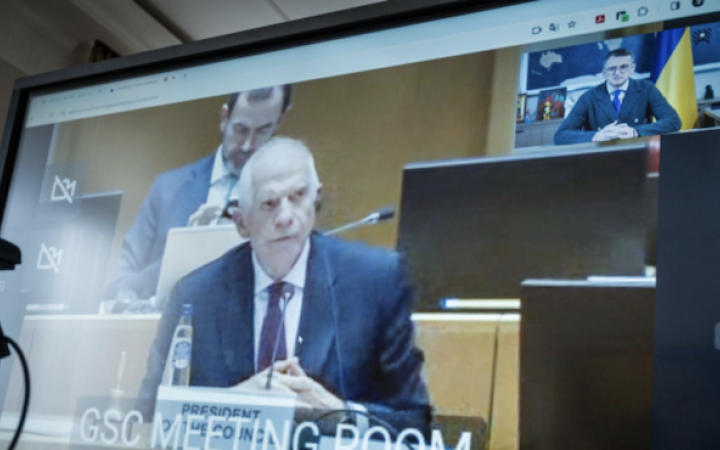Foreign Minister Dmytro Kuleba has called for more air defence systems for Ukraine and for the speedy delivery of long-range missiles with a radius of 300 km or more. In a speech at the Foreign Affairs Council meeting that started today in Brussels, he also drew attention to Russia's escalating air terror.
Kyiv is counting on quick steps to open EU accession talks in the first half of this year. This includes the approval of the negotiation framework and the first intergovernmental conference.
As for defence support, the need to strengthen Ukraine's air defence remains an absolute priority.
"Strengthening air defence remains a priority. Patriot, NASAMS, IRIS-T and SAMP-T are acronyms that save entire cities and thousands of lives. I also call for accelerating the delivery of artillery shells, drones of all types and long-range missiles with a radius of 300+ km. The more shells, the lower the losses; the longer the radius, the shorter the war will be," said Kuleba.
The minister stressed the importance of the European Council's approval on 1 February of a €50 billion long-term financing programme for Ukraine.
"This funding is important for financial stability, the functioning of state institutions and the economy of Ukraine against the backdrop of Russian aggression. Its approval will be the best investment in Europe's security," he said.
Kuleba noted that Russia is still able to obtain some technologies and equipment, including chips and microcircuits, which it uses to produce weapons.
"We need a ban on the supply of dual-use goods and a number of civilian goods that Russia uses to produce weapons. Your countries have some of the best financial intelligence in the world, which is able to detect and block the relevant business schemes," the minister said.
Kuleba expressed hope that the next package of sanctions against Russia would be approved soon, and that work would be successfully carried out to find mechanisms for using Russia's frozen assets to rebuild Ukraine.
"All blocked Russian assets should be used to compensate for the consequences of Russian aggression, defence and restoration of Ukraine. Ways to implement this decision can and should be found by the EU together with the Group of Seven. There are all international legal grounds for this. Russia has been recognised as an aggressor in a number of UN General Assembly resolutions, and therefore bears responsibility for compensation for the damage caused. There is no fairer solution than to do this using frozen Russian assets," the foreign minister said.








